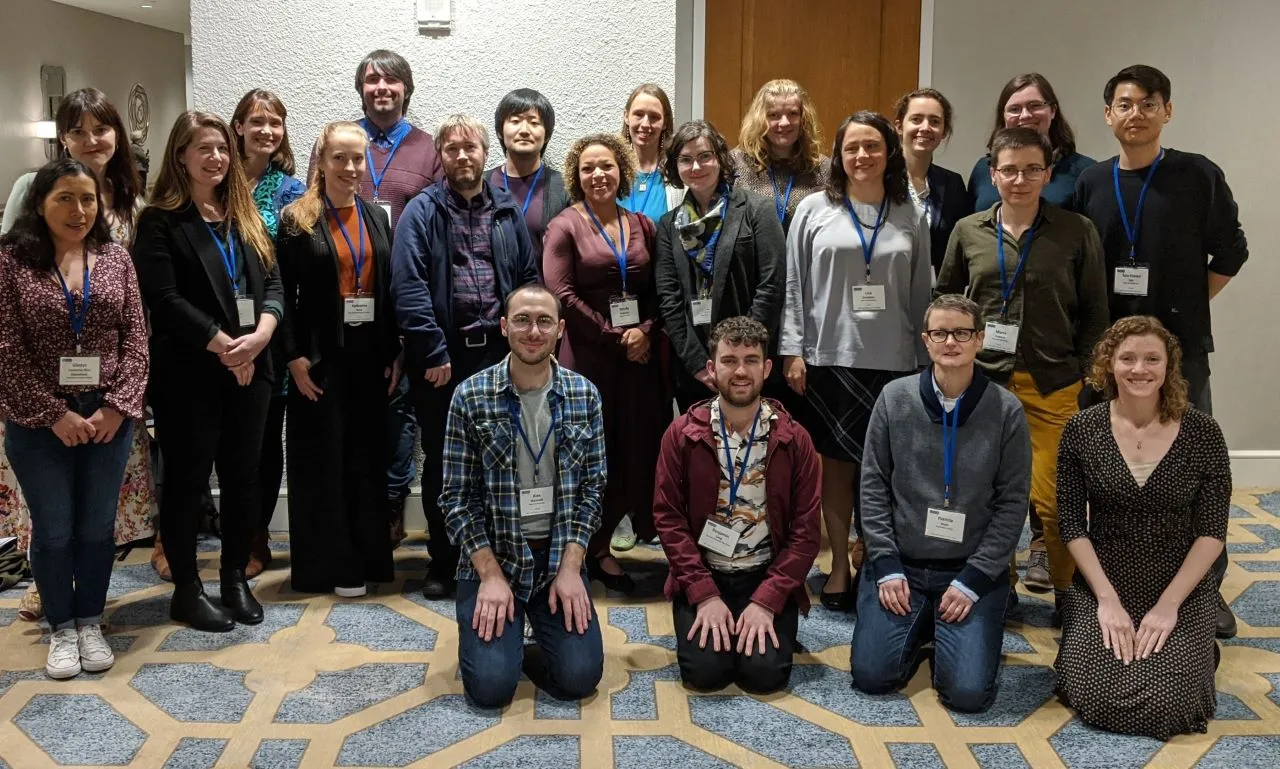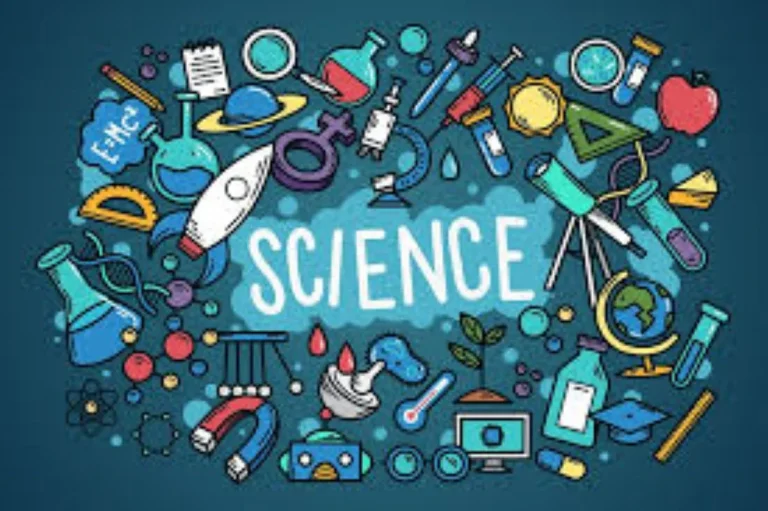Bridging Linguistics And Computer Science At Ucla
With renowned expertise in both linguistics and computer science, UCLA offers unparalleled opportunities to explore the interplay between human language and machines. Students can leverage cross-disciplinary coursework, research, and faculty talent to drive advancements in language technologies.
In short: UCLA provides exceptional resources to study how linguistic principles can inform the development of human-computer interaction, natural language processing, speech recognition, and more.
This article will provide an in-depth look at the vibrant linguistics and computer science programs at UCLA. We’ll cover collaborative academic initiatives, joint research centers spearheading innovation, potential career paths, and advice from current students pursuing the intersection of these complementary fields.
Linguistics and Computer Science Degree Programs at UCLA
UCLA offers a range of degree programs that bridge the fields of linguistics and computer science, allowing students to explore the intersection of language and technology. These programs provide students with a unique skill set that is highly sought after in today’s digital age.
Undergraduate Majors and Minors
At the undergraduate level, UCLA offers both a Linguistics major and a Computer Science major, as well as a joint major in Linguistics and Computer Science. These programs allow students to delve into the fundamentals of both disciplines and gain a deep understanding of how language and technology interact.
The Linguistics major at UCLA focuses on the scientific study of language, covering areas such as phonetics, syntax, semantics, and sociolinguistics. Students in this program develop strong analytical and critical thinking skills, as well as a deep understanding of the structure and function of language.
The Computer Science major at UCLA provides students with a solid foundation in programming, algorithms, data structures, and software development. Students in this program learn how to design and implement computer systems, develop software applications, and solve complex computational problems.
The joint major in Linguistics and Computer Science combines coursework from both disciplines, allowing students to explore the interface between language and technology. Students in this program gain a deep understanding of computational linguistics, natural language processing, and machine learning, and develop the skills to apply this knowledge in practical settings.
Graduate Degrees and Specializations
At the graduate level, UCLA offers a Master’s program in Computational Linguistics, which provides students with advanced training in the application of computer science to the study of language. This program is designed for students who are interested in pursuing careers in natural language processing, machine translation, speech recognition, or other areas where language and technology intersect.
UCLA also offers a Ph.D. program in Linguistics with a specialization in Computational Linguistics. This program is aimed at students who wish to conduct research in the field of computational linguistics and contribute to the development of new technologies for language processing and understanding.
Both the Master’s and Ph.D. programs in Computational Linguistics at UCLA provide students with a rigorous academic environment, state-of-the-art research facilities, and access to leading experts in the field.
Graduates of these programs are well-equipped to pursue careers in academia, industry, or government, and are in high demand for their expertise in language and technology.
For more information about the Linguistics and Computer Science degree programs at UCLA, you can visit the UCLA Linguistics Department and the UCLA Computer Science Department websites.
Cross-Disciplinary Centers and Institutes at UCLA
UCLA is renowned for its commitment to fostering cross-disciplinary collaborations and pushing the boundaries of knowledge. This is evident in the numerous centers and institutes on campus that bring together experts from different fields to tackle complex problems.
In the intersection of linguistics and computer science, UCLA has established several notable centers that are at the forefront of cutting-edge research and innovation.
UCLA Center for Computational Linguistics
The UCLA Center for Computational Linguistics is a leading research center that focuses on the intersection of linguistics and computer science. It brings together linguists, computer scientists, and experts in artificial intelligence to develop computational models and algorithms that can analyze, understand, and generate human language.
The center conducts research on various topics such as natural language processing, machine translation, sentiment analysis, and text summarization. Through its interdisciplinary approach, the center aims to advance our understanding of language and improve the performance of natural language processing systems.
UCLA Center for Language, Interaction, and Culture
The UCLA Center for Language, Interaction, and Culture is another cross-disciplinary center that explores the complex relationship between language, cognition, and society. It brings together researchers from linguistics, psychology, anthropology, and other related fields to investigate how language shapes our thoughts, interactions, and cultural practices.
The center conducts research on a wide range of topics, including language acquisition, bilingualism, discourse analysis, and sociolinguistics. By studying language in its social and cultural contexts, the center aims to gain insights into the fundamental nature of human communication.
UCLA Institute for Pure and Applied Mathematics
The UCLA Institute for Pure and Applied Mathematics (IPAM) may not be solely focused on linguistics and computer science, but it plays a crucial role in fostering interdisciplinary collaborations in these fields.
The institute brings together mathematicians, computer scientists, and researchers from various disciplines to tackle complex mathematical problems with real-world applications. This includes research related to natural language processing, computational linguistics, and machine learning.
By providing a platform for collaboration and knowledge exchange, IPAM contributes to the advancement of research in linguistics and computer science at UCLA.
Research Advances and Innovations
Natural Language Processing
Natural Language Processing (NLP) is an area of research that focuses on enabling computers to understand and process human language. At UCLA, researchers have made significant advancements in NLP by developing algorithms and models that can analyze and interpret text in a way that mimics human understanding.
This has led to breakthroughs in various applications, such as sentiment analysis, text classification, and information retrieval.
One notable project at UCLA is the development of a chatbot that utilizes NLP techniques to understand and respond to user queries. This conversational AI system can provide personalized assistance, answer questions, and even engage in meaningful conversations with users.
The advancements in NLP at UCLA have the potential to revolutionize how we interact with computers and improve the overall user experience.
Machine Translation
Machine Translation (MT) is the process of automatically translating text from one language to another using computer algorithms. UCLA researchers have been at the forefront of MT advancements, particularly in the area of neural machine translation (NMT).
NMT models utilize deep learning techniques to improve the accuracy and fluency of translated text.
At UCLA, researchers have developed state-of-the-art NMT models that have achieved impressive results in various language pairs. These models have significantly improved the quality of machine translations and have made cross-lingual communication more accessible.
The advancements in machine translation at UCLA have the potential to bridge language barriers and facilitate global communication and understanding.
Conversational AI
Conversational AI refers to the development of intelligent systems that can engage in natural and human-like conversations with users. At UCLA, researchers are pushing the boundaries of conversational AI by combining techniques from linguistics and computer science.
By leveraging NLP and machine learning algorithms, they are creating AI systems that can understand context, generate relevant responses, and even display emotions.
One notable project at UCLA is the development of a virtual assistant that can hold intelligent and engaging conversations with users. This conversational AI system is capable of understanding user intent, providing accurate information, and adapting its responses based on the conversation context.
The advancements in conversational AI at UCLA have the potential to transform industries such as customer service, virtual tutoring, and healthcare.
For more information on the research advances and innovations in linguistics and computer science at UCLA, visit https://www.ucla.edu.
Career Paths for Graduates
Graduates of the Linguistics and Computer Science program at UCLA have a wide range of career opportunities available to them. With a strong foundation in both linguistics and computer science, these graduates are highly sought after by tech companies, startups, and academia.
Tech Companies
Many tech companies recognize the value of individuals who have a deep understanding of language and technology. Graduates with a background in Linguistics and Computer Science are often hired for roles such as natural language processing (NLP) engineers, data scientists, and machine learning specialists.
These positions allow graduates to work on cutting-edge projects that involve analyzing and processing large amounts of linguistic data.
Companies like Google, Amazon, Microsoft, and Apple are known to actively recruit graduates from programs like the one offered at UCLA. These companies offer competitive salaries, excellent benefits, and the opportunity to work on groundbreaking projects that have a global impact.
Startups
Startups are another avenue that Linguistics and Computer Science graduates can explore. The startup environment allows for greater flexibility and creativity, as well as the opportunity to make a significant impact in a smaller team.
Startups often focus on developing innovative applications and technologies that leverage language and technology.
Graduates with a background in linguistics and computer science can contribute to various aspects of a startup, including natural language processing, user experience design, and product development. Joining a startup can provide graduates with the chance to work closely with a team of like-minded individuals and have a direct influence on the direction and success of the company.
Academia
For those interested in pursuing a career in academia, the Linguistics and Computer Science program at UCLA provides an excellent foundation. Graduates can go on to pursue advanced degrees in linguistics, computer science, or interdisciplinary fields that combine both disciplines.
With a PhD, graduates can become professors or researchers at universities, conducting cutting-edge research in areas such as computational linguistics, natural language processing, and artificial intelligence.
They can also contribute to the development of new theories and methodologies that bridge the gap between linguistics and computer science.
Furthermore, graduates may also choose to collaborate with other researchers and institutions, both domestically and internationally, to further advance the field of linguistics and computer science.
Insights from Current UCLA Students
Current students at the University of California, Los Angeles (UCLA) are experiencing the exciting intersection of linguistics and computer science. These students are embracing the opportunity to bridge the gap between these two fields, gaining valuable insights and expanding their horizons in the process.
Pursuing Passions in Both Fields
Many UCLA students are drawn to the interdisciplinary nature of linguistics and computer science. They recognize the potential for combining their love of language and technology to create innovative solutions in areas such as natural language processing, machine learning, and artificial intelligence.
One student, Samantha, shares her experience: “I’ve always been fascinated by languages and computers. Being able to study both at UCLA allows me to explore the complexities of human language while also developing practical skills in programming and data analysis. It’s the perfect balance for me.”
Students like Samantha are able to pursue their passions in both fields, leading to a deeper understanding of how language and technology intersect and complement each other.
Seeking Cross-Disciplinary Mentorship
Another benefit of studying linguistics and computer science at UCLA is the opportunity to work with cross-disciplinary mentors. Faculty members who specialize in both fields provide invaluable guidance and support to students, helping them navigate the complexities of their chosen paths.
Michael, a current student, expresses his appreciation for the mentorship he receives: “Having mentors who understand both linguistics and computer science has been a game-changer for me. They help me connect theory with practice and challenge me to think critically about how the two disciplines can work together.”
Through mentorship programs and research opportunities, UCLA students are able to access a wealth of knowledge and expertise from experts in both linguistics and computer science.
Preparing for Industry and Research Roles
One of the main reasons students pursue a dual degree in linguistics and computer science at UCLA is the wide range of career opportunities it opens up. Graduates are well-prepared for roles in industries such as tech, artificial intelligence, data analysis, and computational linguistics.
According to a survey conducted by UCLA’s Career Center, 80% of students who graduated with a dual degree in linguistics and computer science found employment within six months of graduation. This statistic highlights the high demand for professionals who possess a strong background in both fields.
Emily, a recent graduate, shares her success story: “I was able to secure a job as a computational linguist at a leading technology company shortly after graduating. The skills and knowledge I gained from studying linguistics and computer science at UCLA set me apart from other candidates and opened doors for me in the industry.”
By combining the analytical skills of computer science with the linguistic expertise acquired through their studies, UCLA students are well-equipped to excel in various industry and research roles.
Conclusion
With unparalleled expertise in linguistics, computer science, and the intersections between these complementary fields, UCLA offers students exceptional opportunities to drive advancements in language technologies.
By leveraging cross-disciplinary coursework, research centers, and faculty mentors, Bruins can pursue their passions and prepare for impactful careers advancing human-computer interaction, natural language processing, and more.







